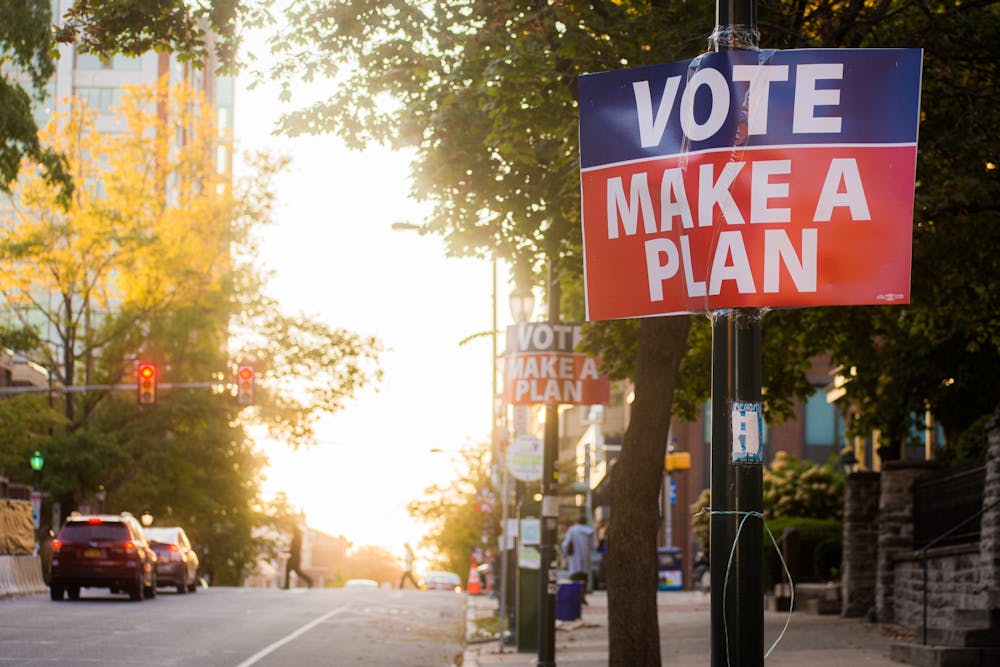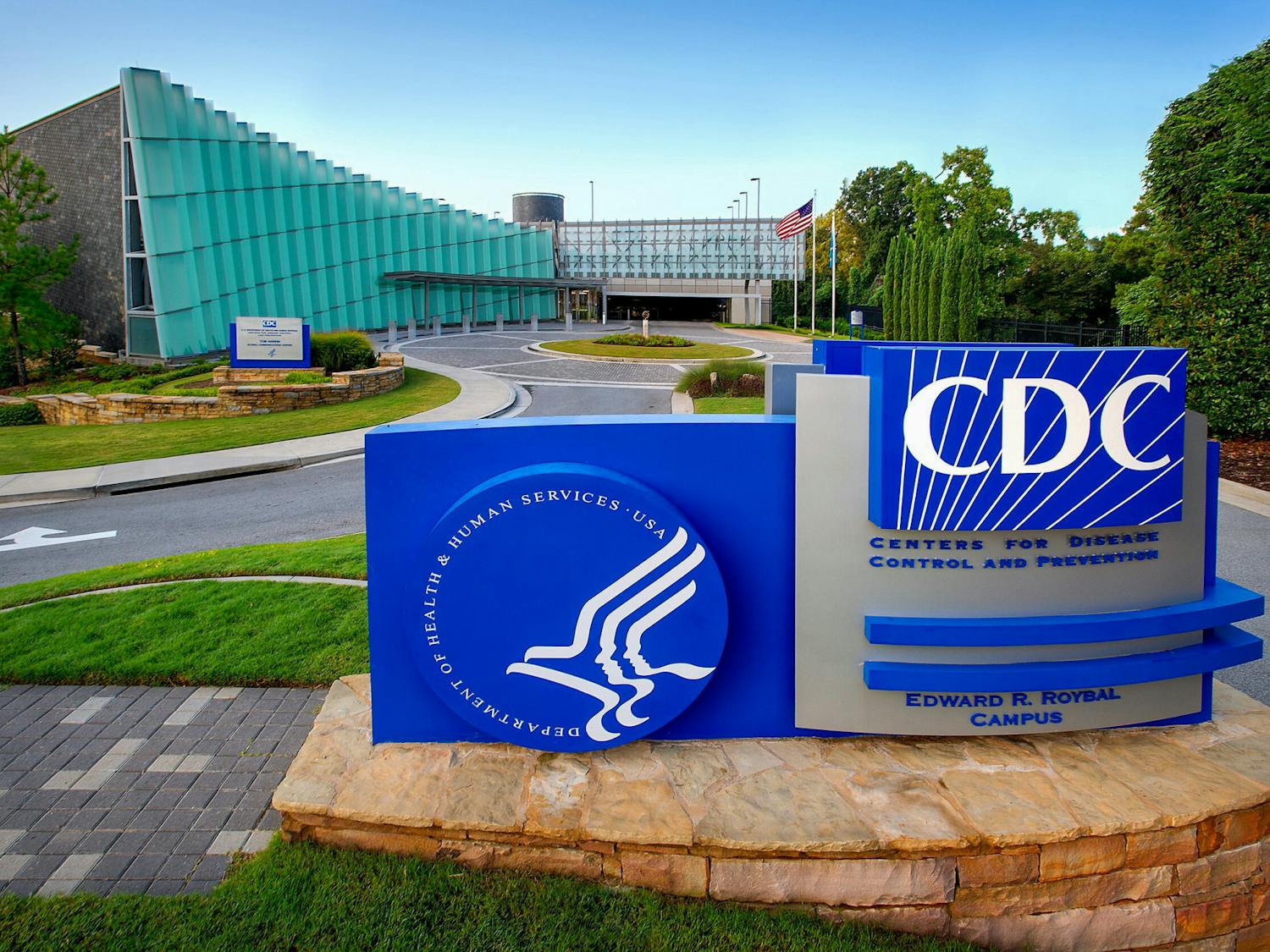A Daily Pennsylvanian poll found that Democrats Lt. Gov. John Fetterman and Pennsylvania Attorney General Josh Shapiro lead their Republican opponents by wide margins among Penn undergraduates in their respective races.
Respondents were asked to indicate which candidates they intend to vote for — if they are voting — in the Nov. 8 elections for Pennsylvania senator and governor. The survey also asked respondents to identify issues and events they considered to be the most pertinent in the midterm election and to rate their approval of President Joe Biden.
Over 87% of the surveyed students who said they are eligible to vote also said that they will vote in the election, the vast majority of whom plan to vote for Fetterman for senator and Shapiro for governor. About 73% of respondents described themselves as Democrats and about 8% identified as Republicans. 18.1% of those surveyed described their political affiliation as Independent.
The anonymous survey, which ran from Oct. 11 to Oct. 26, garnered 346 responses from the Class of 2023 through the Class of 2026. An additional 26 responses identified themselves as graduate students or Penn faculty.
Shapiro enjoys a 78% to 7% lead over Republican candidate state Sen. Doug Mastriano. Across all four undergraduate schools, Shapiro has the highest rate of support among students in the School of Arts and Sciences.
A similar story is evident in the Pennsylvania senate race. Fetterman has the support of three in four respondents. Republican senate nominee Mehmet Oz, a 1986 Wharton MBA and Perelman School of Medicine graduate, performs a few percentage points better than his counterpart in the governor's race, Mastriano.
Marc Trussler, the director of data sciences at the Penn Program on Opinion Research and Election Studies, told the DP that the results of the survey were "broadly what I would expect," noting that young people and people with higher levels of education — like Penn students — are generally more supportive of Democratic candidates.
"Those two things combined would lead us to believe that Penn students would be more supportive of Democratic candidates, and that's exactly what we're seeing here," Trussler said.
When given a list of political issues, respondents cited abortion, the environment, and social issues as the three issues that are most important to them. Among Republican students, abortion ranks lower than crime and economic outlook. 59% of Republican respondents ranked economic outlook among their three most important issues, compared to just 18% of Democratic respondents.
In line with the results of the survey, Penn Democrats members have seen many students interested in maintaining reproductive rights this semester, according to Penn Dems Membership Director and College junior Leo Cassel-Siskind.
Similarly to how abortion is the top issue of the midterms among Penn students, 63% of respondents indicated that the Supreme Court's overturning of Roe v. Wade severely impacted their voting choice or incentive to vote. That number increases to 70% among only Democratic respondents. Nearly half of Republican respondents — 48% — ranked the Russia-Ukraine War as one of the top recent events driving their vote, while only 10% of all respondents said the FBI raid of former President Donald Trump was a motivating factor.
While gun control ranks highly as a top issue among both parties, there is a wider disparity between the shares of Democrats and Republicans that said recent mass shootings impacted their voting choice. 51% of Democrats said mass shootings affected their motivation to vote, compared to just 19% of Republicans.
In the gubernatorial race, Trussler said that one of the questions that could impact the results is how much Mastriano's relationship to the Jan. 6 insurrection and "the more extreme side" of the Republican Party "is going to matter." Among those who listed the Jan. 6 insurrection as a recent event that motivated their vote, just 2% planned to vote for Mastriano for governor, while 85% preferred Shapiro.
The survey indicated low approval for Biden among Penn students, with 42.7% of respondents indicating that they neither approve nor disapprove of his performance as president. Approval of Biden is strongest among seniors, men, white respondents, and respondents who indicated that the Jan 6. insurrection impacted their vote.
While Democrats were more likely than Republicans to approve of Biden's performance, respondents in both parties overwhelmingly said that they would not like to see Biden run for re-election as president. Nearly 70% of Democrats oppose his re-election, compared to 81% of Republicans. Across the four class years, opposition to a second Biden term was strongest among members of the Class of 2024, who are against his re-election 86% to 14%.
To College and Wharton sophomore Joshua Frazier, a political director for Penn College Republicans, the level of approval of Biden and support for his re-election compared to support for Democratic candidates demonstrates that both Biden and Trump are less seen as the stewards of their parties.
"It's quite indicative of one phenomenon, that both parties right now don't really have a current leader that they identify with, or [who] truly espouses their platform," Frazier said.
The DP's survey was distributed through the DP's social media accounts, five class GroupMe chats, and advertisements in the DP's newsletters, print issues, and webpage. The sample overrepresents first years, who constitute 37% of all respondents but 24% of the student body, and underrepresents seniors, who constitute 16% of all respondents. It also overrepresents female students, who constitute 61% of the sample, and Asian students, who represent 42% of the sample.









